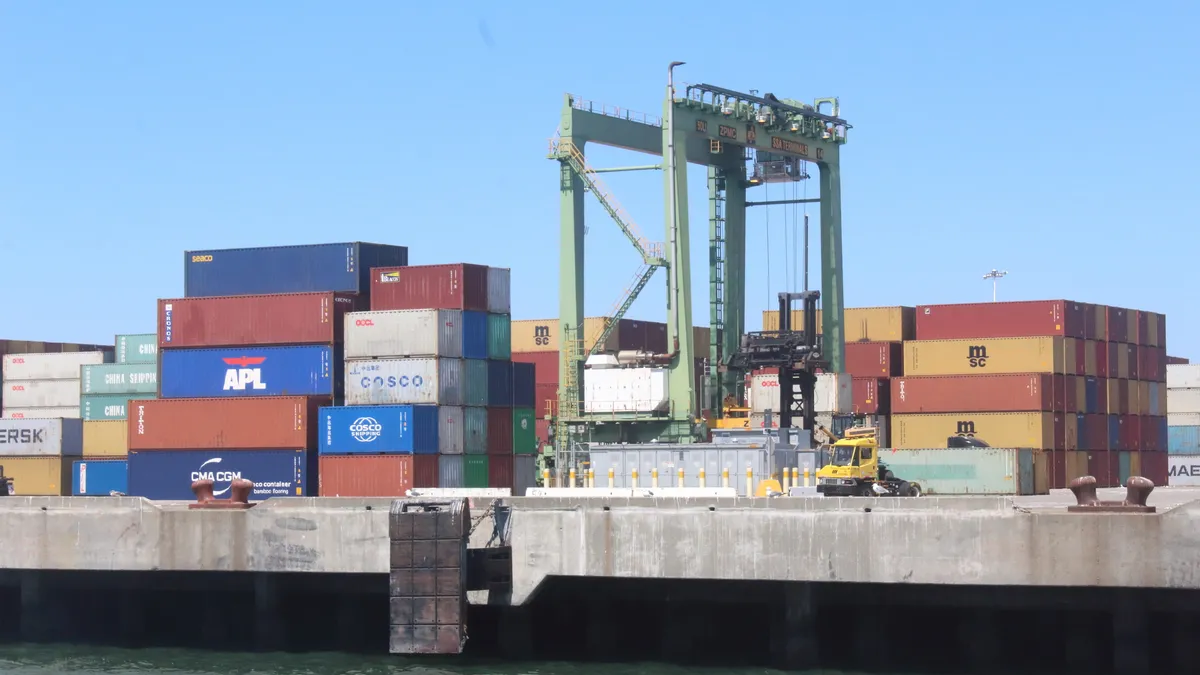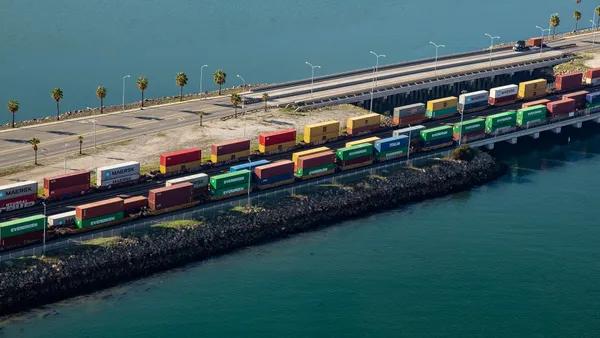Dive Brief:
- The Federal Maritime Commission's investigation into detention and demurrage is in its final phase, according to an agency press release, which will include creating industry standards of language and dispute resolution around the charges.
- After a year-long investigation, the commission found the detention and demurrage fees in the market to be "just and reasonable," concluding that the fees "incentivize cargo to move expeditiously." The task now is to standardize the practice.
- "It is an enormous challenge to develop an industry-wide practice for demurrage and detention. Our goal is to make focused, significant changes that will emphasize demurrage and detention incentives and boost freight fluidity," Commissioner Rebecca Dye said in a statement. The commission has until Sept. 3 to issue its final report.
Dive Insight:
Phase II of Commissioner Dye's investigation ended in December when the commission announced it would work to standardize the language used to describe detention and demurrage in an effort to make clear what shippers are being charged for and how those charges are being assessed.
The final report will include recommendations regarding:
• Transparent and standardized language for detention and demurrage practices.
• Clear, simple, and accessible billing and dispute resolution processes for detention and demurrage charges.
• Evidence that would be relevant to resolving demurrage and detention billing disputes.
• Consistent notice to cargo interests of container availability.
In order to develop these recommendations, Dye has convened "innovation teams," a concept that goes back to 2016. The teams will meet in Washington, D.C. no later than April to inform the commission's recommendations.
"We had the enviable problem of an overwhelming response to our request for industry leaders willing to serve on the innovation teams," Dye said in a statement. "I am pleased to have the benefit of the experience and knowledge of so many industry leaders and also from those who have already contributed to the demurrage and detention investigation with written submissions, interviews, and emails."















